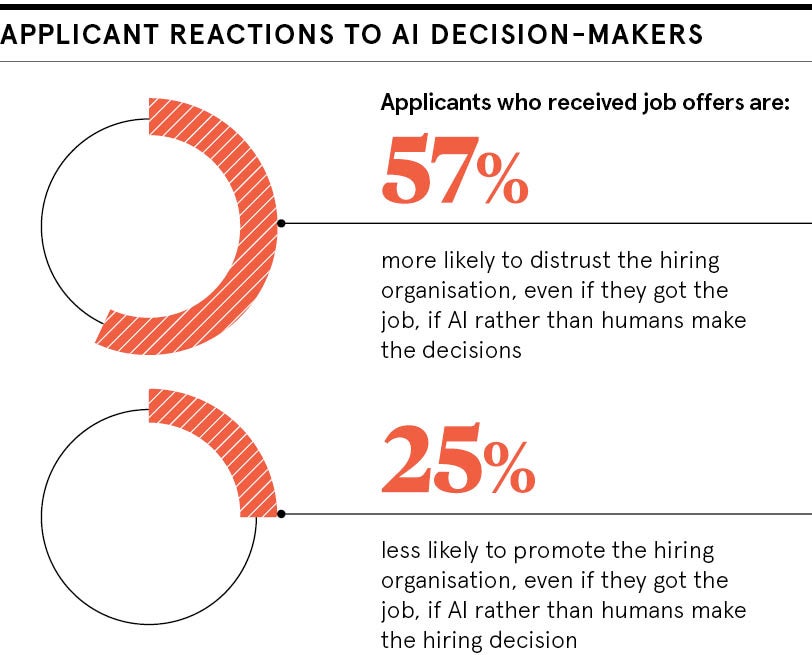The rapidly advancing nature of machine intelligence has fuelled a much-needed change in the narrative around diversity hiring and positioned objectivity, rather than quotas, at the heart of solutions for inclusivity. Companies are realising that measuring behavioural competencies, without bias, produces greater outcomes.
The long-held approach to early-stage talent acquisition in large US consulting and financial services companies epitomised the flawed approach to inclusive hiring that existed for too long. Employers would tie up with a small network of preferred universities to utilise the social demographic data they collect relating to their students and acquire talent from under-represented groups to meet their diversity quotas.
“They were fishing in a pool of 1 per cent and ignoring the other 99 per cent of talent in a country that’s made up of every colour, creed and gender under the sun,” says Andreas Lohff, chief executive at Aon’s Assessment Solutions. “While good intentioned, it’s a very mechanical process and not a good way to achieve the outcome. It fails to provide opportunity for the many talented people who don’t happen to be in these institutions.”
Even if companies were able to hit recruitment quotas through this approach to talent acquisition, it’s clear that only hiring from elite universities does very little to achieve genuine diversity in a workforce. Technologies such as AI and machine-learning, however, are now spearheading a path to removing human bias.

A new wave of intelligent online assessments, driven by predictive analytics, can understand whether a person has the necessary skills and qualities to be successful in a job role, such as a management consultant or investment banker. They are giving access to demographics of people who previously were never given a chance in the whole economy.
“The systems are really good at not having any adverse impact on under-represented groups or women,” says Mr Lohff. “AI-driven online assessments organise everything for attracting and loading the application pool with the right mix of diverse talent. They’re boosting the yields companies get from a wider talent pool, are much more inclusive and are really good for their brand because there is proven value in building workforces that reflect the demographics of your customers.”
Aon’s Assessment Solutions is a leader in automatically scored, on-demand solutions that incorporate video into interviews and are designed responsively for the mobile-first millennial generation. Having conducted an automated interview on their smartphone in their own time, applicants are assessed and measured by algorithms against various behavioural characteristics linked to the specific role.
AI is able to replicate the typical elements of a job interview, but without the subconscious human desire to make decisions based on personal bias rather than objective facts. In a case study with a large airline, Aon’s intelligent algorithms chose the same candidate to progress as an expert interviewer on 95 per cent of occasions during the AI training phase. However, the AI scoring does not get bored or tired, or base decisions on implicit biases.
A new wave of intelligent online assessments, driven by predictive analytics, can understand whether a person has the necessary skills and qualities to be successful in a job role
While the benefits of using AI to streamline hiring processes and enhance diversity are clear, organisations must overcome scepticism among the general public. In an online experiment by Aon, applicants were 57 per cent more likely to distrust the hiring organisation if AI rather than humans made the decisions, even if they got the job.
This distrust is exacerbated when the AI is not able to explain its decisions, as has been the case with the hundreds of recruitment technologies with “black box” algorithms. Not being able to justify why a candidate has failed to progress in a job interview can also leave employers vulnerable to legal challenges. Organisations can overcome the scepticism by adding personal channels that allow applicants to interact with real people, while Aon’s technology arms AI with the power to provide reasons.
“The black box has died,” says Mr Lohff. “With really clear data that can correlate what is gathered and show what has been measured, our AI can not only understand which people will provide the best business outcomes, but will also provide proper feedback and justify why decisions have been made in a way that’s acceptable for candidates.”
For more information please visit assessment.aon.com/ai-in-assessment






